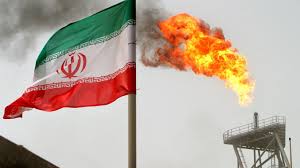Global oil and gold prices jumped and shares fell after US officials said an Israeli missile had struck Iran. After initial sharp moves in Asia on Friday, the market reaction eased with Brent crude oil trading around 1.7% higher, to sit above $88 a barrel, while gold was close to $2,400 an ounce.

Benchmark stock indexes in Japan, Hong Kong and South Korea also lost ground after the news. Investors have been closely watching Israel’s reaction to Iran’s drone and missile attack on the country last weekend.
They are concerned that a worsening conflict in the Middle East could disrupt oil supplies. In stock markets, the Nikkei 225 index in Tokyo was trading about 2.5% lower, while Hong Kong’s Hang Seng was around 1.2% lower and the Kospi in South Korea fell by about 1.7%.
Oil price fluctuations can cause ripple effects across the world due to countries being heavily reliant on the commodity, which is used to produce fuels such as petrol and diesel.
Fuel and energy prices have been a major driver behind the higher cost of living worldwide in the past couple of years. Gold is often seen as a safe investment at times of uncertainty.
Heightened tensions in the Middle East have already affected shipping through the Strait of Hormuz between Oman and Iran. It is a crucial shipping route, as about 20% of the world’s total oil supply passes through it.
Members of the oil producers’ cartel Opec – Saudi Arabia, Iran, the UAE, Kuwait and Iraq – send most of the oil they export through the Strait. Iran is the seventh largest oil producer in the world, according to the US Energy Information Administration, and the third-largest member of Opec.
The spike in oil prices is “a knee-jerk reaction to fears of a renewed escalation of warfare between Israel and Iran,” said energy market expert Vandana Hari of Vanda Insights.
“What the latest events underscore is the heightened fragility and volatility in the Mid East situation,” she added.
Source: BBC















